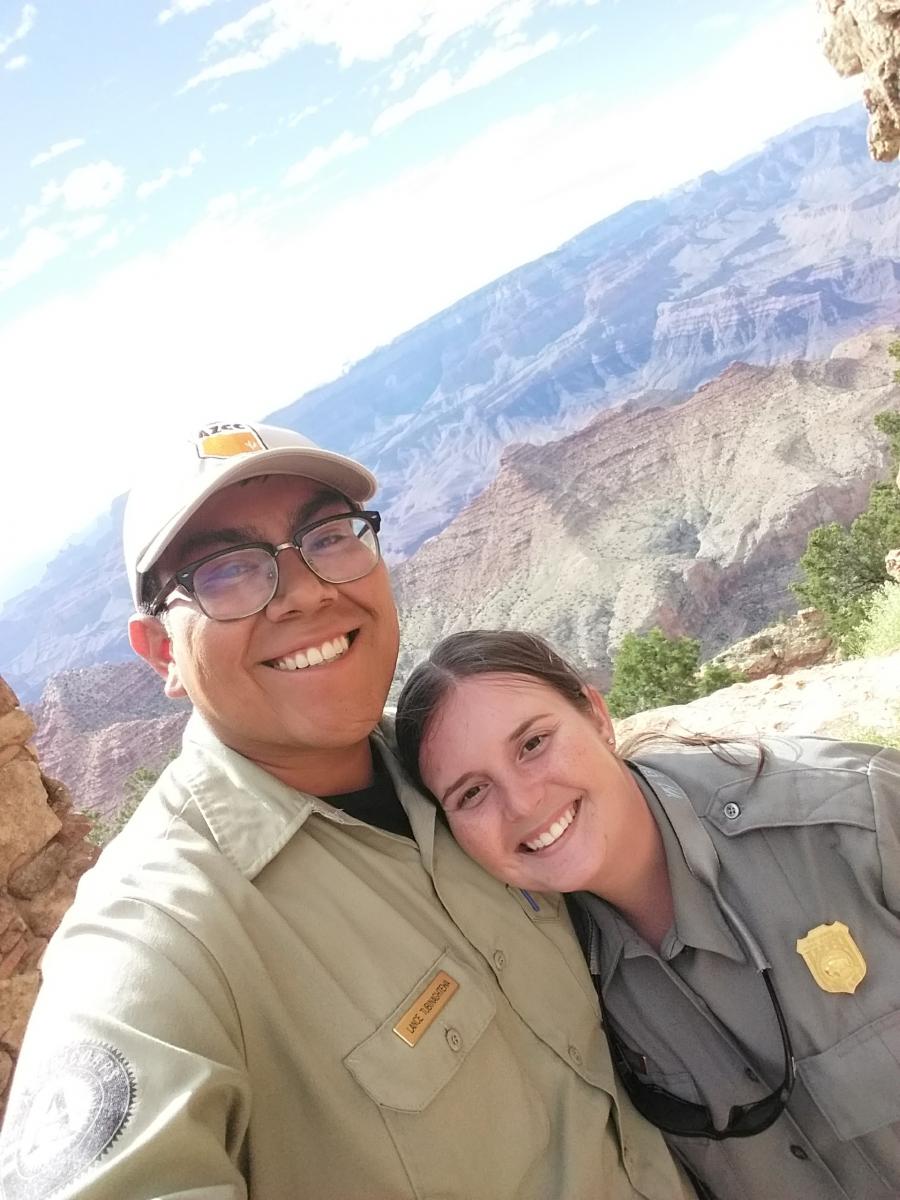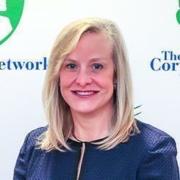

Every year, at The Corps Network’s National Conference in Washington, DC, we honor a select group of exceptional Corpsmembers from our member Service and Conservation Corps. These young men and women have exceeded the expectations of their Corps by exhibiting outstanding leadership skills and demonstrating an earnest commitment to service and civic engagement. The Corpsmembers of the Year are role models; their personal stories and accomplishments are an inspiration to Corpsmembers nationwide.
It was clear from the beginning that Lance Tubinaghtewa was a rising star at the Arizona Conservation Corps (AZCC), a program of Conservation Legacy. His focused work ethic and warm, effortless sense of humor helped develop a deep sense of community within his crew.
Lance started out as an AmeriCorps member at Grand Canyon National Park on a crew designed to engage members of the 11 Tribes traditionally associated with the Grand Canyon. There he got a broad look at the different divisions within the park service, working on everything from trail maintenance, to preserving cultural sites, to conducting butterfly population surveys.
Lance then spent two terms with Arizona Conservation Corps’ local program, serving in Tucson and Phoenix on a variety of trail construction and maintenance projects. He eventually worked his way up to an Assistant Crew Leader position, teaching new Corpsmembers about rockwork, trail maintenance and backcountry living. He was instrumental in helping the Corps pilot its Tribal programming in Phoenix in partnership with the Tonto National Forest.
One of the most significant parts of this experience was how Lance helped a member with a difficult background come to feel welcome in the program. The member had been shot in the leg only a year before his Corps experience; Lance helped him really embrace the spirit of “heal the land, heal the man.” Lance, true to form, hesitates to take credit for that, but he helps instill confidence among his peers and encourages them to connect to conservation.
Most recently, Lance is spending his fourth and final AmeriCorps term as an intern with the Interpretation Department at Grand Canyon National Park at Desert View. He’s proven to be skilled at interacting with visitors, teaching the public about the Canyon’s rich history and his Hopi culture. A park ranger and supervisor said of him: “Lance has done a great job working for us all summer. He is a hard worker who sets a great example and really cares about doing a good job. He is extremely reliable and trustworthy. More importantly, I have come to see him as a quiet leader. Safety awareness is very important to us, and Lance has done a great job of reporting situations and working with us to correct them.”
Lance has walked the talk on safety. On one occasion, he was first on scene to a visitor who had been struck on the head by a falling rock and was seriously injured in a remote part of the park. Using skills he learned in the Corps, Lance assessed the patient, applied a compress to stop the bleeding, monitored his vitals, kept him calm, stopped bystanders from interfering, and ultimately attended to the patient for 40 minutes until the park’s EMS arrived. This was far and above the call of duty for an intern.
Lance himself says the influence of his AZCC experience has been profound. “Even now, I still struggle to find the words to describe it,” he said. “Prior to my first crew, I was unsure about a number of things, but, during the first term, much self-discovery took place. This coincided with the most unique and humbling experiences of my life. These moments are engraved in my mind and cherished because I spent them with my closest friends. With my different seasons, I grew. Finding new connections to places my ancestors have called home for millennia. Finding a deeper sense of self along with my worth and strengths.”
Lance says he has become more civically engaged as a result of his service and time at the Grand Canyon. Feeling that his native culture and heritage face significant threats, he has become attentive to and eloquent about issues around Tribal lands.
“I am not the first Hopi, so I’m not fluent in traditional knowledge, but my time here has shed light on cultural ideas and concepts, in effect bringing me closer to my identity as a Hopi man,” he said.
In his role at the Grand Canyon, Lance encounters thousands of tourists each day who are curious about the park and his Hopi heritage. He sees this as another opportunity for great change, service and fulfillment of his heritage. His plan is to use his AmeriCorps Education Awards to attend Glendale Community College toward a degree in archaeology and astronomy; two fields of study that piqued his interest when serving in the backcountry on his ancestral lands.


































































